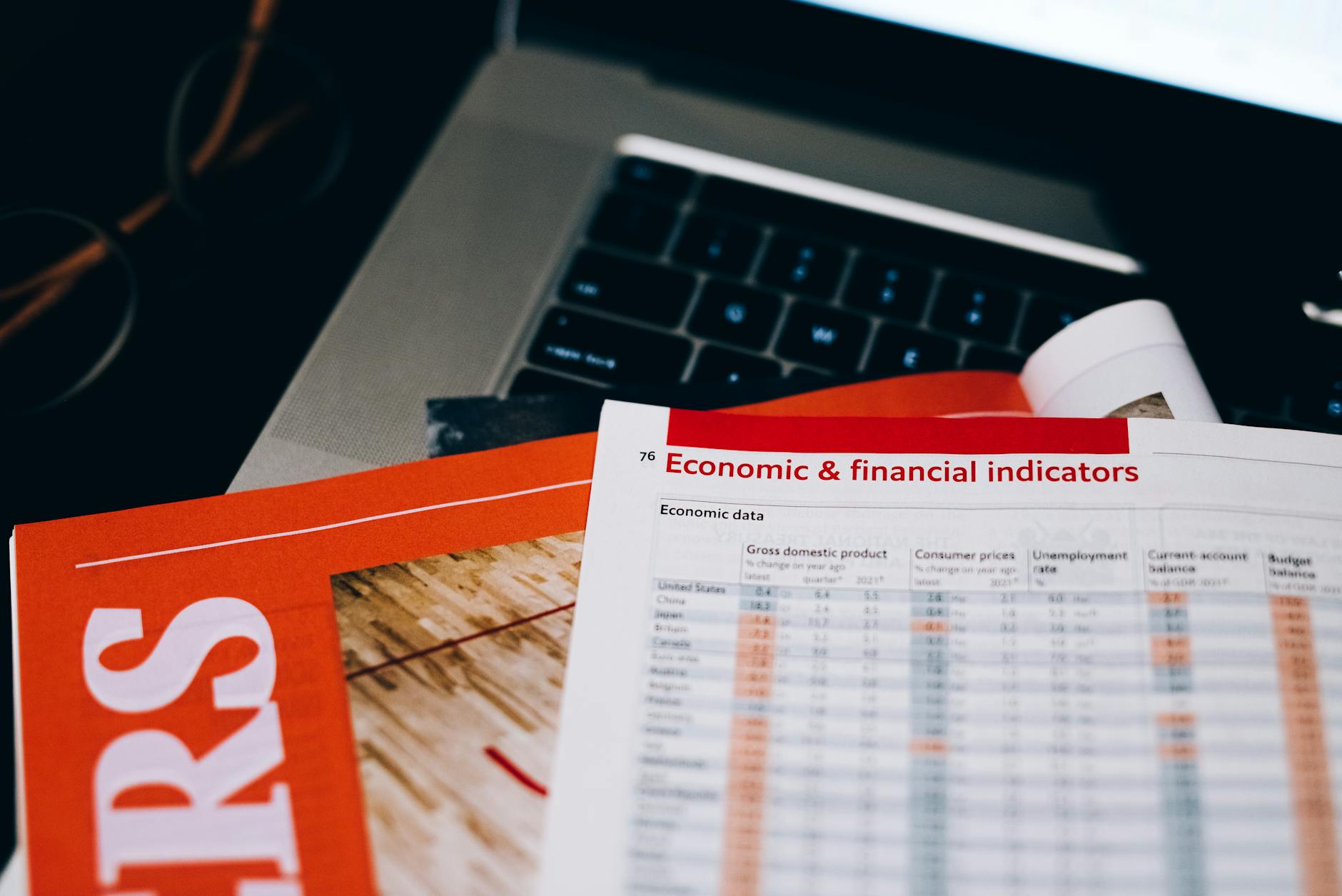How to Manage Your Banking Options Effectively in Australia

Exploring Banking Needs
When it comes to financial management, the decision to open a bank account online in Australia is pivotal for both personal and business spheres. The process is often straightforward, even more so if you’re someone like me, a retail manager constantly on the lookout for streamlined solutions how to open a bank accounts online in australia. While wandering around Federation Square’s bookstores, thoughts of managing finances seamlessly from a smartphone might just strike you.
First, let’s talk about the critical features to consider for both personal and business accounts. A joint bank account might be a viable option for those managing finances with a partner can you set up a joint bank accounts online. This is especially useful if both parties contribute toward common financial goals. Don’t overlook the usefulness of features like easy-to-use mobile banking apps and low account-keeping fees.
In the quest for managing the bookstore's finances effectively, evaluating the best savings interest rates is crucial. This practice offers a competitive edge, ensuring any surplus cash is working efficiently for you while it rests savings interest rate comparison. Moreover, setting financial goals lays down a strategic road map, giving a sense of direction amid the hustle of daily sales and orders. Balancing these considerations can bring immense empowerment, much like the satisfaction of hosting a successful book launch at the State Library Victoria.
Opening a Bank Account
Navigating the process of opening a bank account in Australia can be pivotal to both personal and business financial stability. Whether you're managing your own funds or handling the cash flow of an independent bookstore near the bustling State Library Victoria, understanding how to open a bank accounts in australia effectively is key. Let's parse through the essential steps and requirements.
Required Documents
Before heading to the bank, ensure you have all necessary documents ready. Typically, you'll need:
- A valid form of identification, like a passport or driver’s license.
- Proof of address, such as a utility bill.
- Tax File Number (TFN), which can help maximise interest earnings by avoiding excess tax withholding.
For business accounts, you'll further require company registration details and an Australian Business Number (ABN).
Step-by-Step Opening Process
Once your documents are in order, initiate the process either online or in a branch. Online options offer convenience and are quite streamlined. However, for those who appreciate face-to-face interaction, visiting a bank branch can provide personalised advice.
- Assess and compare different savings accounts to find the best fit (savings comparison can be a helpful resource).
- Submit your documentation either via an online form or directly to a bank representative.
- Upon verification, the bank will assist in setting up the account, enabling you to start managing your finances efficiently.
Online vs. In-Person Setups
The choice between online and in-person setups often hinges on personal preference. Online setups offer a certain ease—perfect for the busy retail manager balancing both literature and logistics. On the other hand, opting for in-person setups can provide immediate answers to any questions, enhancing confidence and understanding.
Managing Cash Flow
Monitoring Expenses Effectively
An integral part of managing your business's cash flow is keeping a close eye on expenses. When it comes to monitoring these outgoing funds, it can be incredibly beneficial to set up automated alerts through your business bank account. Such a bank accounts feature provides instant notifications of significant transactions. Additionally, crafting a detailed expense report each month can unveil patterns and potential avenues for cost-cutting. Revisit subscriptions, utility costs, and stock procurement to ensure nothing unnecessary erodes your bottom line.
Utilizing Banking Tools
Modern banking tools present a treasure trove of options to enhance cash flow management. Look for bank accounts offering forecasting tools that project future cash needs based on historical data and current trends. These tools can be invaluable, particularly for predicting the leaner months. comparing bank accounts isn't just about monthly fees; it's about the suite of services on offer that can make your day-to-day easier.
Planning for Fluctuations
Acknowledging the cyclical nature of retail, with its peaks around busy seasons like the holiday months and troughs, is essential. This necessitates sound planning, preparing for these fluctuations well in advance. Consider setting aside a percentage of profits during high seasons for slower months. This financial cushion lets you navigate through downtowns without succumbing to anxiety.
Being informed about effective financial management strategies for small businesses can transform financial stability into a tangible reality. Just like when I’m surrounded by books at the State Library Victoria, filled with stories and wisdom, it’s clear that knowledge is our greatest asset in securing a stable future.
Maximizing Account Benefits
Leveraging Interest Rates
When it comes to managing savings, understanding interest rates on savings accounts is crucial for maximising returns. As an independent bookstore owner in Melbourne, you recognise that every dollar matters. Leveraging competitive interest rates for savings accounts can make a significant difference over time. With fluctuating cash flows in small businesses, it's wise to consider stashing away excess funds in a high-yield account during peak sales seasons. This strategy not only grows your savings but also provides a cushion for leaner periods, such as those typically slower months when sales dip at your bookstore.
Reward Programs and Offers
Reward programs and offers from banks can also be an attractive incentive, particularly for small business owners. Look for business accounts that offer cashback on office supplies or discounts with local suppliers. Some banks provide unique partnerships that benefit retailers, like discounts on inventory stock or marketing services. When choosing a banking partner, consider these perks against the backdrop of your day-to-day business expenses and operational needs.
Linking Business and Personal Accounts
Linking your business and personal accounts can create a streamlined financial management system. This simplifies cash flow tracking, making it easier to monitor transactions and maintain separation of funds for tax purposes. Establishing clear boundaries between your personal and business finances not only aids in compliance with banking tools but also engenders financial clarity. Having this clarity ensures that, when it comes time to reinvest in your beloved bookstore, you have a clear view of available resources, just as an afternoon exploring Federation Square’s bookstores might reveal fresh ideas for your own shelves.
Proactive Banking Practices
Regular Account Reviews
Routine financial check-ins are like browsing through the impressive book collections at the State Library Victoria—essential for staying informed and inspired. Schedule regular reviews of your accounts to ensure you’re on track with your financial management tips for small businesses. Consider it akin to skimming through book reviews to discover new titles of interest. Such reviews enable you to spot unusual transactions or patterns that need attention before they spiral out of control. Plus, it's an opportunity to assess where you're tracking with your business goals. Treat these sessions as time devoted to understanding and improving your financial narrative.
Security Measures and Alerts
Walking through Queen Victoria Market, one must be mindful of their belongings, just as you should be with your financial assets. Set up security alerts on your accounts to keep an eye on everything. Whether you're roaming through the Federation Square’s bookstores or managing day-to-day operations, real-time updates can avert potential issues. Cybersecurity isn't merely about keeping threats at bay; it’s like ensuring a splendid book cover match the content inside—protective measures are critical to preserving integrity and trust. Regular updates to passwords and awareness of phishing attempts are fundamental practices.
Seeking Community Support
Melbourne’s rich tapestry of local support networks is akin to a well-woven narrative built from diverse perspectives. Leverage the strength of community around the areas like the Queen Victoria Market to foster business success. Small business groups and financial workshops offer resources and much-needed camaraderie. Just as book clubs enrich your reading journey, seeking advice and insights from fellow entrepreneurs and experts contributes to a thriving enterprise. Collaboration and shared experiences provide a foundation for growth, making financial literacy and business management more attainable and less daunting.


